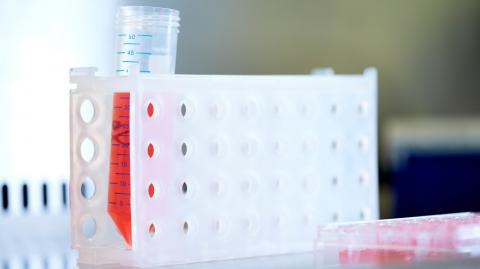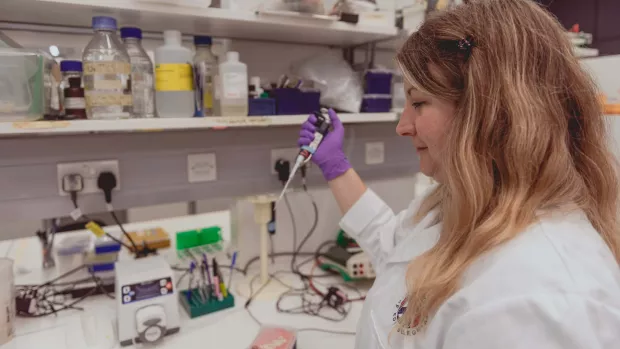Understanding the role of interferon in autoimmunity

- Lead researcher:
- Professor Yanick Crow
- Based at:
- University of Edinburgh. Co-funded by Versus Arthritis, JDRF and us.
- MS Society funding:
- £50,000
- Status:
- Complete
About the project
Interferon is a substance affecting the action of different cells of the immune system. Increased levels of interferon are thought to be important in contributing to conditions like type 1 diabetes and rheumatoid arthritis. However, interferon is also used to treat people with MS.
Why interferon appears to have protective or harmful effects in different autoimmune conditions is not understood. This research aims to measure interferon levels in different autoimmune conditions to better understand the relationship between interferon and autoimmunity.
Why is this research important?
Understanding why interferon is associated with different autoimmune conditions in harmful or protective ways could help improve treatments for people with autoimmune conditions, potentially by blocking the harmful effects of interferon and harnessing the good effects that it can have on the immune system.
This research will identify people with different autoimmune conditions, including lupus, rheumatoid arthritis, type 1 diabetes, Sjögren syndrome and MS.
The research team will measure each individual’s interferon levels, using a variety of different tests, including a new test developed by this research team, to try and find new links between interferon and these different autoimmune conditions.
How will the findings benefit people with autoimmune conditions?
If this research can provide more information on the relationship between interferon and autoimmunity, it could ultimately mean that doctors could better identify which treatment a person would respond to best, as well as aiding the development of drugs that regulate interferon.
It's hoped this research will also confirm whether the new test for measuring interferon is effective in different autoimmune conditions, meaning it could become the first interferon test available in routine medical practice.




